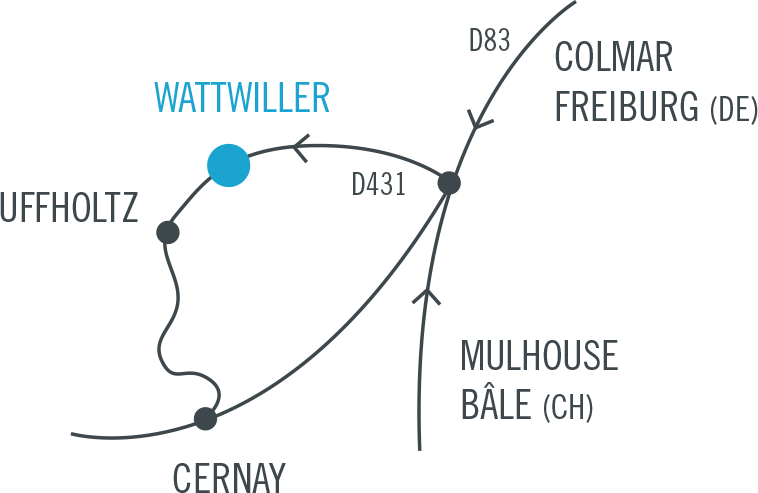Jenny Ymker weaves large paintings, monochrome or colored, systematically posting a female figure walking her loneliness in different landscapes, outdoor or sometimes domestic. How to embrace one’s solitude in a world where joy is a permanent injunction?
The power of isolation and the acceptance of withdrawal are themes dear to the artist, inspired by a decade of practice in hospitals, working with mentally fragile patients or those affected by Alzheimer’s disease. Jenny Ymker has been able to brush up against human fears, the rawest feelings and the elemental part of everyone.
Sculptor and ceramist at the beginning, she abandons her workshop at the dawn of the 2010s, but will quickly return to an artistic practice, switching from clay to needlework for smaller works of embroidery.
Her mind constantly inhabited by multiple scenarios, she is limited by the slowness of the realization of her first tapestries. She discovers a factory in Belgium, which becomes her best ally to carry out these gobelins, an ancient name that she applies to her contemporary technique, sensitive to the traditional know-how.
The large paintings that she recomposes evoke the romantic landscapes of the 19th century or the Flemish painting of the 17th century, a melancholic and uncertain world, full of delicacy, at the crossroads between art and craft.
To realize these works, meticulously prepared and skilfully orchestrated photo shoots, hunting here and there for the right accessories, are part of the creative process. For one project, 80 to 90 shots are necessary. The artist puts herself on stage, wandering in the fields, the forests, according to the seasons, often equipped with a small suitcase, leaving or looking for a universe adapted to her person.
With Mopping, it’s a curious, offbeat scene, where the protagonist wrings out the water from the sea, using a piece of cloth and a bucket. Useless, endless, absurd action.
Jenny Ymker depicts an inner world, intimate, sharing certain concerns and opening doors to those who want to see.
